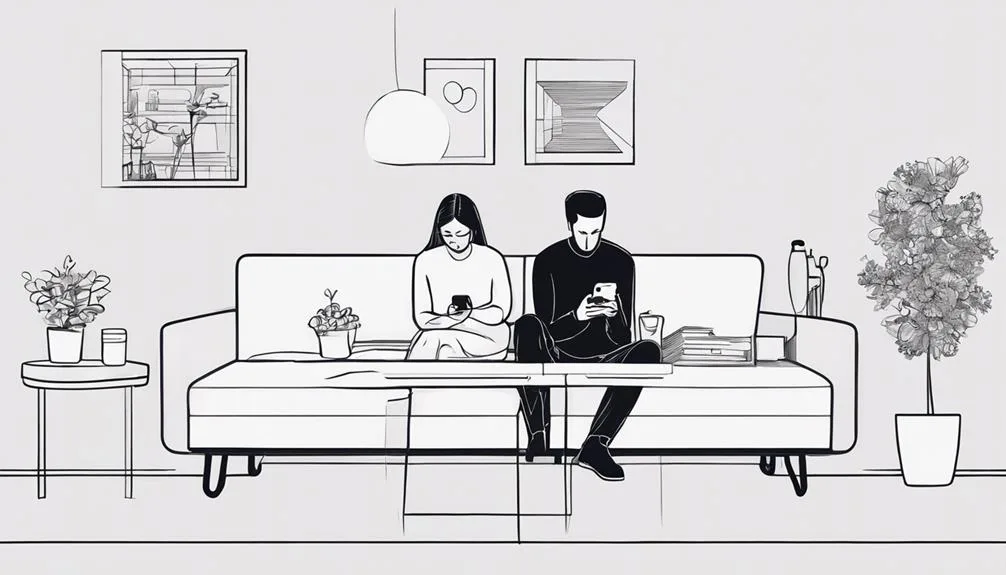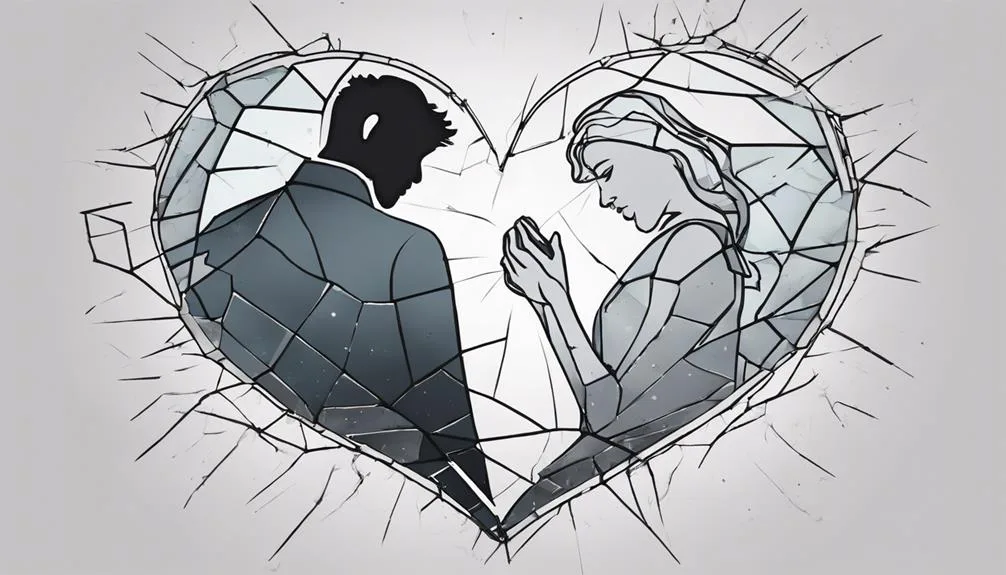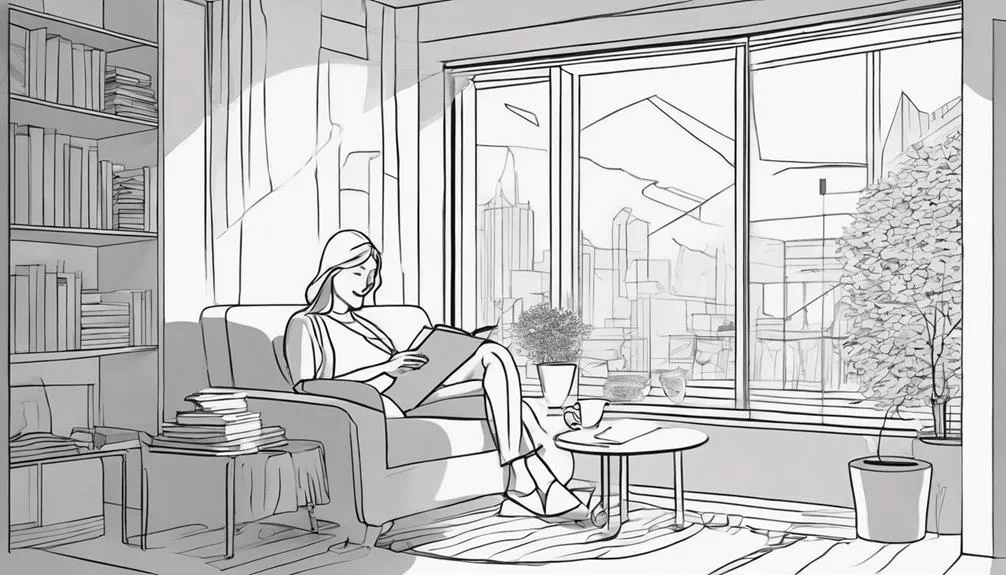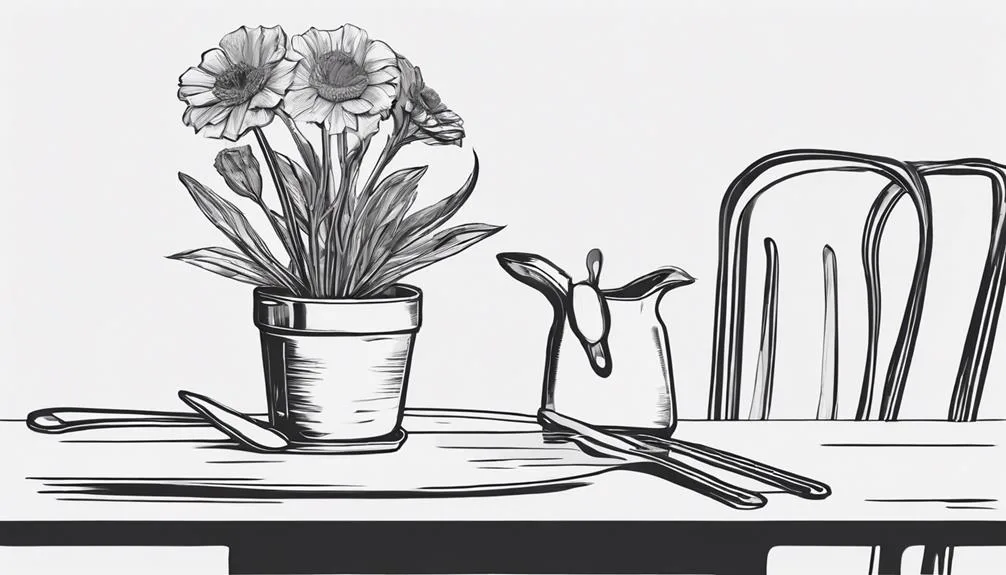Just like seasons change, so can relationships. If you find that you're talking less, not laughing together much, and making more solo plans, it might be a sign things are shifting.
It's important to notice these changes not to place blame but to understand your situation better. By looking into these signs, you can figure out what to do next. This is a look at some of those key signs.
Key Takeaways
- Silent meals and ignored calls mark a significant communication breakdown.
- Constant arguments over small issues highlight deep-rooted problems.
- Decreased physical affection and intimacy signal an emotional disconnect.
- Trust issues, marked by secrecy and suspicion, destabilize relationships.
Lack of Communication

At the heart of a deteriorating relationship often lies a glaring issue: you're not talking to each other anymore. Silent meals have become the norm, where once lively conversations filled the air. Now, you sit opposite each other, scrolling through your phones, barely acknowledging the other's presence.
It's not just at the dinner table either. Your calls go unanswered, voicemails left with the hope of a callback that never comes. It's as if speaking has become an insurmountable task. This silence isn't peaceful; it's loaded with unsaid words, creating a gap too wide to bridge with mere small talk.
When communication fades, it's a sign you're drifting apart, inching closer to the end.
Constant Arguments

If you're constantly arguing over the smallest issues, it's a significant sign that your relationship's foundation is cracking. These frequent clashes often point to deeper problems that haven't been addressed, turning trivial matters into argument triggers. It's important to recognize when you're stuck in this cycle of contention. Identifying the root causes of these disputes can shed light on unresolved issues.
Implementing resolution strategies is essential for breaking this pattern. Whether it's taking a step back to cool off before discussing matters or seeking couples therapy to navigate through your challenges, finding a way to address and resolve these triggers is key. Without intervention, constant arguments can erode the mutual respect and understanding necessary for a healthy relationship, pushing you further apart.
Diminished Affection

Another sign that your relationship might be nearing its end is when you notice a significant decrease in affection. This can manifest in various ways, making you feel distant and disconnected from your partner. Here's how:
- Fewer Physical Touches: The spontaneous hugs, kisses, or even casual touches you used to share become rare or non-existent.
- Less Interest in Intimacy: Your intimate moments are far and few between, feeling more like a routine than a passionate connection.
- Neglecting Personal Interests: You or your partner might start ignoring activities you once enjoyed together, focusing more on individual hobbies.
- Increased Social Isolation: Instead of seeking each other's company, you might find solace in solitude or outside your relationship, leading to emotional and physical detachment.
Avoiding Each Other

When you start finding reasons to spend less time with your partner, it's a clear sign that your relationship may be on rocky ground. This avoidance doesn't happen overnight but gradually builds as you seek out personal distractions over spending time together.
Whether it's suddenly taking up a new hobby that doesn't include your partner or spending more time at work, these actions can lead to social isolation within your relationship. You're not just avoiding each other physically but emotionally too, withdrawing into separate worlds to avoid confrontation or the reality that things aren't working out.
This behavior is a significant indicator that the connection you once shared is dwindling, potentially signaling the end of your relationship.
Trust Issues

Trust issues can erode the foundation of your relationship, leaving you questioning every word and action of your partner. When trust starts to crumble, it's often a clear sign that things might be heading towards an end. Here's how you can spot trust issues:
- Secret keeping becomes the norm, not the exception. You find out things about your partner's life from others, or accidentally.
- Suspicious behavior starts to raise red flags. They're overly protective of their phone or social media.
- You're constantly verifying their stories because things just don't add up.
- Attempts to discuss your concerns are met with defensiveness or outright denial.
When these elements become prominent, it's a signal that your relationship might be on shaky ground.
Different Life Goals

Beyond trust issues, having different life goals can also signal your relationship might not last. When you're eyeing a high-flying career in a bustling city and your partner dreams of a laid-back life in the countryside, the clash is hard to ignore. It's not just about location; it's about what you value in life. Career aspirations and educational pursuits are often the biggest dividers. If one wants to climb the corporate ladder while the other seeks further studies abroad, finding common ground becomes challenging.
| You | Your Partner |
|---|---|
| Career aspirations in a city | Prefers a quiet countryside life |
| Aiming for higher positions | Wants to pursue further education abroad |
| Seeks a fast-paced lifestyle | Desires a slower, more relaxed pace |
Understanding and respecting these differences is vital, but sometimes, they're too vast to bridge.
No Future Plans Together

If you and your partner have stopped making future plans together, it's a telling sign that your relationship may be nearing its end. This shift can manifest in several ways:
- Vacations or trips you once eagerly plotted are no longer on the agenda, revealing a lack of enthusiasm for shared experiences.
- Shared hobbies that used to define your weekends now seem like distant memories, indicating a loss of common ground.
- Major life events, like buying a house or planning for children, are topics you both avoid, hinting at uncertainty about your future together.
- Financial disagreements become more frequent, suggesting differing priorities and a reluctance to invest in a shared future.
Recognizing these signs can be tough, but they're significant indicators that the connection you once had may be fading.
Feeling Happier Alone

Recognizing that you feel more joyful in solitude than in the company of your partner is a clear indicator that your relationship might be on its last legs. When you start to relish your alone time, finding solace in personal growth and solo hobbies, it's a sign.
This isn't about the healthy independence everyone needs; it's about preferring your own company because it brings you peace and fulfillment that you no longer find with your partner. Diving into personal projects or hobbies alone not only brings you joy but also highlights a disconnect.
You're evolving, perhaps in directions that diverge from your partner's path, and this newfound happiness in solitude may suggest it's time to reassess the relationship's future.
Lack of Support

Another telling sign your relationship may be nearing its end is a noticeable lack of support from your partner. When you're facing challenges, the person who's supposed to be your rock seems distant, leading to emotional isolation. This can manifest in various ways:
- Your achievements aren't celebrated or even acknowledged, leaving you feeling undervalued.
- When you're upset or stressed, there's a palpable absence of comfort or understanding.
- Your partner's promises of support are often forgotten, highlighting supportive inconsistencies.
- Discussions about your dreams or worries are met with indifference or, worse, irritation.
These signs indicate a rift in your connection, where the foundation of mutual support has crumbled, leaving you to navigate your struggles alone.
Infidelity Concerns

One of the most devastating signs that your relationship might be on the brink of collapse is the emergence of infidelity concerns. When you're grappling with doubts and suspicions, it's vital to handle these feelings directly. Don't let the fear of discovering the truth paralyze you. Instead, focus on clear communication and seek the truth with compassion for yourself and your partner.
| Aspect | Importance | Tips for Handling |
|---|---|---|
| Trust | Core foundation | Open dialogue |
| Communication | Key to clarity | Be honest |
| Emotional recovery | Essential for moving forward | Seek support, practice self-care |
Handling suspicion requires courage, and emotional recovery won't happen overnight. Embrace the journey, knowing that you're heading towards a place of greater clarity and peace, regardless of the outcome.
Conclusion
Acknowledging these signs—diminished communication, constant arguments, lack of affection, and a preference for solitude—can be challenging.
When trust falters, plans for the future fade, and concerns of infidelity arise, it prompts a moment of reflection.
It's essential to consider your happiness and well-being as primary.
While the decision to part ways may bring initial discomfort, it also paves the way for personal growth and new opportunities.
Could this be the moment to embrace change for a chance at renewed happiness?

